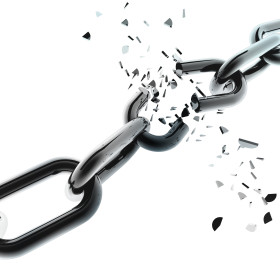Earlier this year, running back Ray Rice knocked his then fiancé now wife, Janay Palmer, unconscious. And he received a two game suspension. Much after the fact, NFL Commissioner Roger Goodell commented that failure to adequately address domestic violence should never be repeated. But I’m not holding my breath, because the language of violence has become commonplace in our society.
If it’s possible to change the cultural dialogue, the first step is to bring a problem that thrives in secrecy to public attention. Surveillance tools, mobile devices and social media are now helping to raise awareness. More women must come forward–like actress Robin Givens, whose sons encouraged her to speak about her ex-husband and heavyweight boxing champion, Mike Tyson.
The legacy for abused women is feelings of horror, fear and helplessness. And many develop Post Traumatic Stress Disorder (PTSD) with intrusive flashbacks, crippling avoidance, and increased hyper-vigilance. Girlfriends and wives, shattered by life-threatening experiences, are never the same again.
Yet sometimes these women still stand by their man. And the reasons can be difficult to understand. They may be in denial, embarrassed to tell anyone what’s going on or afraid to admit it to themselves. Or they struggle with inner turmoil, vacillating between feeling conflicted, grief-stricken or guilty. Some are dependent, were abused as kids or may even feel they deserve it. Others think about the good times, believe in his promises to change, or fear that leaving will make things worse. Ending a violent relationship without careful planning can be fatal.
The consequences are far-reaching. More than 3 million children witness domestic violence every year and many of them are abused too. If your kids see your husband battering you, they’re twice as likely to become abusive themselves. And sons of wife beaters are three times more likely to go to jail.
What can we do: Go back to the basics and redefine what constitutes manliness? Organize community education campaigns about the consequences of domestic violence? Develop self-defense courses to instill beliefs about the right to be safe and not victimized? Employ therapists to help athletes differentiate between aggression on the field and off? Build 12-step programs with sponsors to encourage abusers to be more self-reflective and accountable? Create couples’ support groups that teach anger management, conflict resolution and communication skills?
The time is right for all of these ideas, and more! So many young boys want to grow up to be professional football players. But some of their role models are not so heroic. The NFL has been put under pressure to implement more effective domestic violence policies and programs. And the world is watching…










